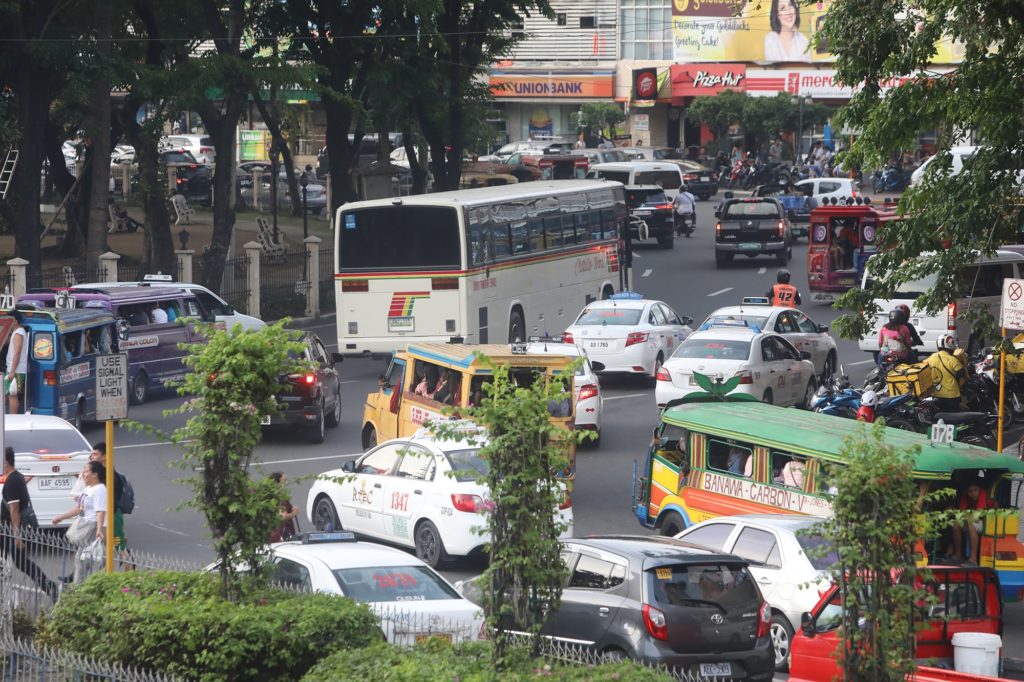
The Fuente Osmeña Rotunda is one of the two roundabouts here in Cebu. The other one is the Rotunda in Carcar City. (CDN File Photo)
CEBU CITY, Philippines — Would roundabouts ease the traffic congestion in Cebu’s busy intersections?
The Department of Public Works and Highways in Central Visayas (DPWH-7) Regional Director Edgar Tabacon revealed on Thursday, November 7, that they are looking into the feasibility of putting up roundabouts in Metro Cebu’s 25 busiest intersections in lieu of traffic lights.
Converting the intersections into roundabouts means that the traffic flow will be continuous, unlike in a regular intersection when one traffic flow will need to stop to give way to vehicles coming from other directions.
Cebu currently has two roundabouts, the Fuente Osmeña Circle and the rotunda in Carcar City.
Read more: Gwen Garcia dismayed with DPWH-7 head’s absence in MCDCB meeting
Read more: Gwen: Cebu traffic needs solutions, not a debate if it’s a ‘crisis’
Tabacon said they found that roundabouts are very feasible in Metro Cebu’s intersection and would complement their ongoing and proposed infrastructure projects.
“Yes [the roundabout will complement our infrastructure projects]. There are even areas where roundabouts are very ideal that we will not need the traffic lights anymore,” Tabacon said in an interview after his meeting with Cebu Governor Gwendolyn Garcia on Thursday, November 7.
Garcia first raised the concept of roundabouts during a meeting of the Metro Cebu Development Coordinating Board (MCDCB) in September.
Garcia said roundabouts would be a better option which can be implemented immediately since it does not consume much time and money to be implemented.
“That is what we are considering now. In view of the numerous suggestions, we are considering its implementation. We are still in the stage of studying it. It is very feasible,” said Tabacon.
With roundabouts being considered as options for the intersections, Tabacon said they will also revisit their initial feasibility studies for the construction of flyovers, underpasses, and interchanges in the 25 intersections across Metro Cebu.
Tabacon added that they will aslo consider that the roads in the intersection should at least have three lanes to qualify it to be converted to roundabouts.
“We still have to conduct a survey, actual physical survey in the area. Of course, we have to weigh the cost of the [implementation of the roundabouts]. For example, if there are structures already in place and it is difficult to widen the area to accommodate the roundabout, we still have to study on that,” Tabacon explained.
However, Tabacon said roundabouts cannot be implemented in 2020 yet, because the budget for the agency’s project is already pending in Congress.